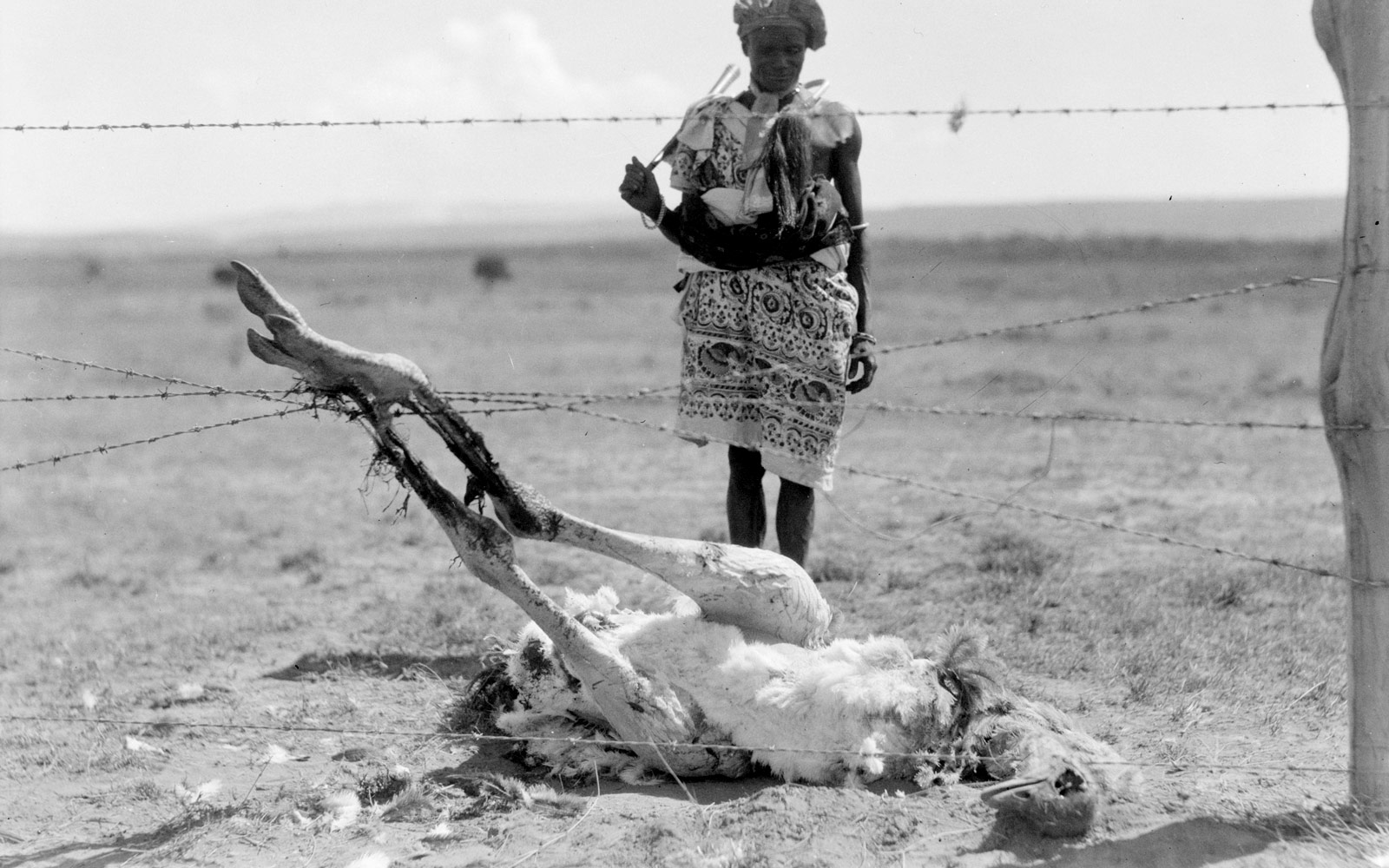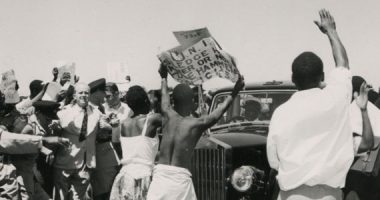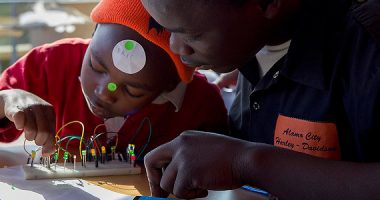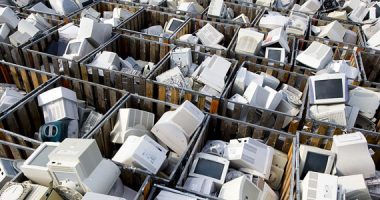
Ostrich succumbed by entanglement in barbed wire. Rift Valley, 1936 | Library of Congress | Public Domain
In many spheres the African continent has been a mere laboratory for Western governments and transnational corporations. Although it may seem incredible, one of these spheres has been the digital sphere, but in is darkest dimension: control, espionage, censorship. The interests of certain companies that develop solutions for Internet control have coincided with those of liberticidal governments with a desire to control their citizens beyond any idea of fundamental rights. Meanwhile, civil societies have organised themselves to denounce and fight the abuses and have achieved considerable success, including generating a solidarity network that is as creative as it is tireless.
If in recent years the digital universe has become a stronghold for social construction, it has also been discovered as a place where it is not difficult to strangle the most fundamental of rights. The two sides of one same reality, a space for social and political participation in contexts of severe deprivation of freedom, a scenario for innovative experiences for citizens, perhaps in other slightly friendlier contexts; and at the same time, a fertile environment for espionage, a context in which rights are intended to be violated and downtrodden, sometimes (only sometimes) with impunity. Not only has the African continent not been spared from this macabre game, but rather it has become a privileged board on which to play it. Because of certain specific conditions, the African continent has been the laboratory for the experimentation of many techniques and tools used in Internet espionage and censorship. And in parallel, it is also the scenario of dynamic and creative movements stemming from civil society that are trying to remedy the situation.
It has been over a decade since the activation of the pernicious alliance between companies that develop Internet surveillance tools and African governments that want to control processes of protest or, more simply, their citizens in general, far beyond the boundaries of human rights. Julie Owono is a Cameroonian lawyer resident in France and the executive director of Internet Sans Frontières, an NGO dedicated to the defence of digital rights. Owono explains that ten or fifteen years ago, digital espionage companies found the perfect conditions to experiment with their “solutions” in some African countries. A playing field with few Internet users, i.e., a perfectly controllable population, and one that was practically virgin in the legal sphere. “There was a virtual legal vacuum in terms of digital rights, rights to privacy, and the protection of personal data,” Owono comments.
This was the context for trialling systems known as DPI (Deep Packet Inspection) which allow systematic spying on communications based on key contents; or tools that allow the “mapping” of communities, making a map of who is who in a protest group, who has been talking to who, how they related through the conversations. Over the course of recent years, the names of countries such as Ethiopia, Egypt, Gabon and Nigeria have appeared linked to the purchase of espionage tools to control the communications of their citizens. On the opposite side, Italian, French, British and Israeli companies appear as the vendors of these tools. Owono recalls the case of the French company Amesys which has been taken to court by the organisation IFDH, as alleged accomplice of the crimes committed by the Libyan regime of Gaddafi, due to the fact that the tools of the French company allegedly enabled the Libyan dictator to identify dissidents.
In any event, shutdowns, blackouts of the Internet are, in reality, the favourite formula used by governments to censor and control activity in the digital environment. The #KeepItOn campaign documented 56 shutdowns in twenty-six countries worldwide during the year 2016, eighteen of them in a dozen African countries. The authorities of the continent have abandoned themselves with especial ease to this censorship drift. In the previous year the number of African countries over which digital silence had spread was half. The campaign led by the organisation AccessNow and in which Internet Sans Frontières has played a major role, above all, in information on Africa, aimed to denounce and raise awareness. Denounce the ease with which governments were resorting to these measures and raise awareness regarding the serious nature of this practice.
Julie Owono reminds us, to justify the campaign, that when governments cut access to the Internet it is in order to commit abuses. Among the African cases, the Internet was switched off in Ethiopia in the midst of a severe wave of protests in Oromia and during protest processes these blackouts also occurred in Zimbabwe, Mali and the DR Congo, while in countries such as Uganda, Gabon, Chad, Congo-Brazzaville, and Zambia the shutdowns took place during or after the elections. In all cases, the aim is to silence any social effervescence and conceal any possible repression.
The campaign also had a considerable responsibility in the resolution with which the UN Human Rights Council raised the Internet to the category of a Human Right. The United Nations backed the principle by which “the same rights that citizens have offline, should also be protected online”. And in the same way, in April of this year, the thirty governments that form part of the Freedom Online Coalition, made a commitment to denouncing the shutdowns and fighting against them. These gestures and those of other international organisations show a change in mentality in relation to espionage, control and censorship on the Internet.
Strategies for defending digital rights have different faces because there are many actors with leading roles in this scenario. Organisations for the defence of digital rights remind us that the threat to freedom in the virtual space comes from state governments, but also from companies. Julie Owono warns that on the African continent, legislation in issues such as personal data processing and protection is noticeable by its absence. “There are no boundaries, there are no rules. Companies can collect and store more personal data than in Europe. The bodies entrusted with protecting personal data in most of the African countries either have no resources to do it effectively or are too close to the companies themselves,” the Cameroonian lawyer explains.
Telecommunications operators are a threat to digital rights, whether voluntarily or involuntarily. Voluntarily because they have access to a tremendous volume of data that, as is well known, is commonly used as commercial material, and because in this sense they have very few legal controls. Involuntary because, on occasions, they are also pressured by governments to be able to use the data to which they have access. The executive director of Internet Sans Frontières tells how, in Cameroon, the Ministry of Post and Telecommunications has sent threatening text messages using the network of operators in which it warned of the penalties for spreading false messages, right in the midst of the breakout of social conflict.
For this reason, these operating companies have become the target of organisations for the defence of human rights. While they are working to increase the legal control and knowing that the legislative roads are tortuous and its times slow, they have sought an alternative solution: changing the reality, until the law changes. They try to convince the operators that they will earn more money if they do not lend themselves to the blackouts imposed by the governments and, at the same time, they warn companies of how this violation of rights may affect their international reputation, which at the same time is also an asset.
Organisations that are fighting against the Internet shutdowns in Africa have explored a new pathway for encouraging companies to refuse to accept pressure from the authorities: the pathway of motivation. And what better motivation for companies than financial results? Internet shutdowns lead to losses and that is the most recent line of work: documenting and disseminating information on the amount lost per shutdown, a strategy that has also been developed in other countries.
Although the year began with a blackout in Cameroon, Julie Owono is optimistic with regard to the future. “In 2016 there was a peak of Internet blackouts in Africa, precisely due to the lack of awareness of the serious nature of this measure. But what has enabled the strong mobilisation of 2016 has been the involvement of many more actors. I am almost sure that the blackouts will gradually decrease,” explains the executive director of Internet Sans Frontières.
After the campaigns, the mobilisations and the joint work by activists on the continent and based elsewhere, the pressure against Internet shutdowns and controls, in general, is no longer the sole domain of civil society organisations. The UN has become involved in the defence of digital rights; operators know that they are losing money when the authorities commit abuses; companies from the technology sector also know that an Internet accessible to everyone increases their business. However, activism and solidarity have been the main weapons for advancing towards a free and accessible Internet. While the horizon remains distant, African cyberactivists are increasingly more aware, more prepared, better organised and better connected in everything related with digital security.





Leave a comment